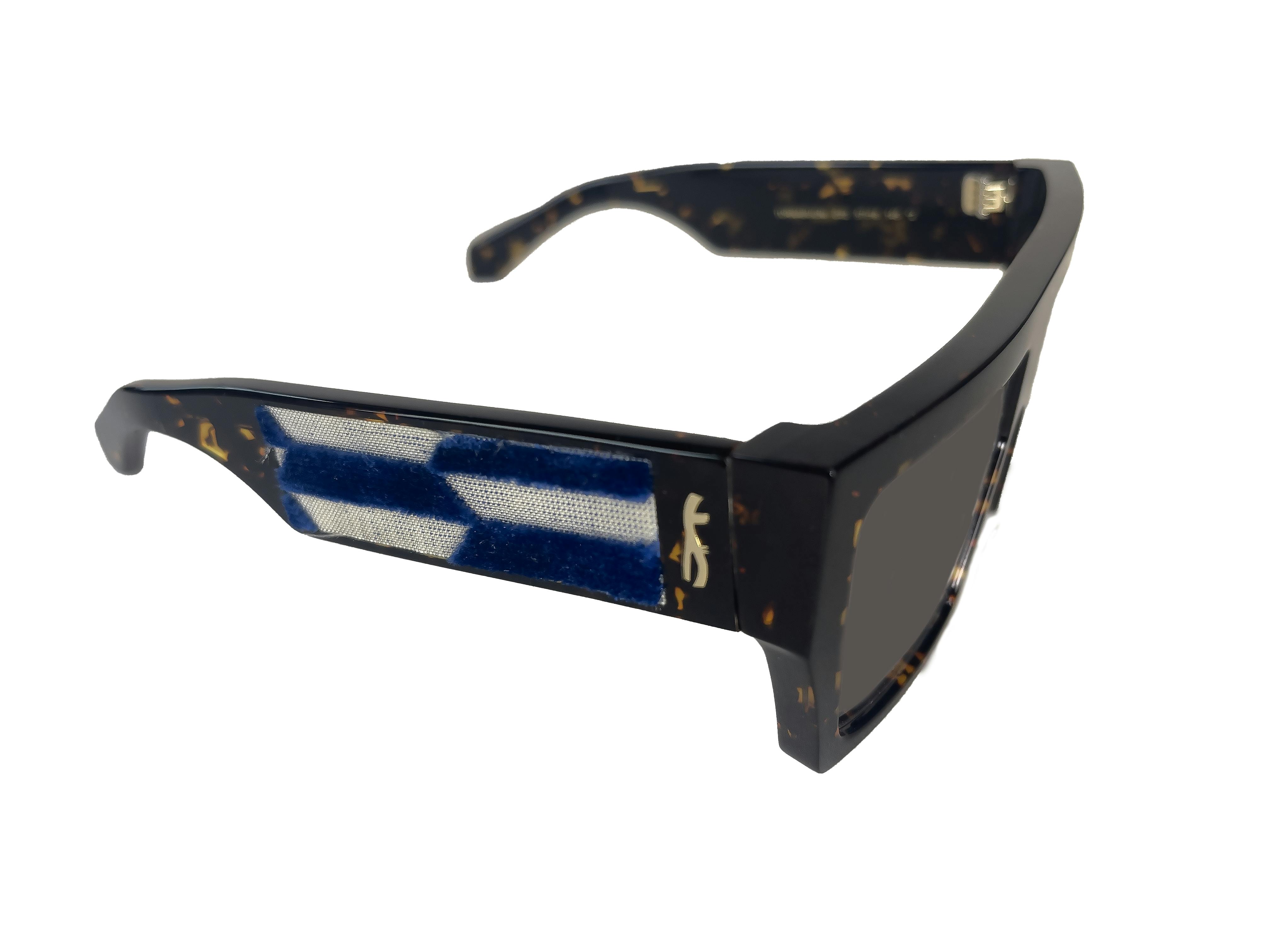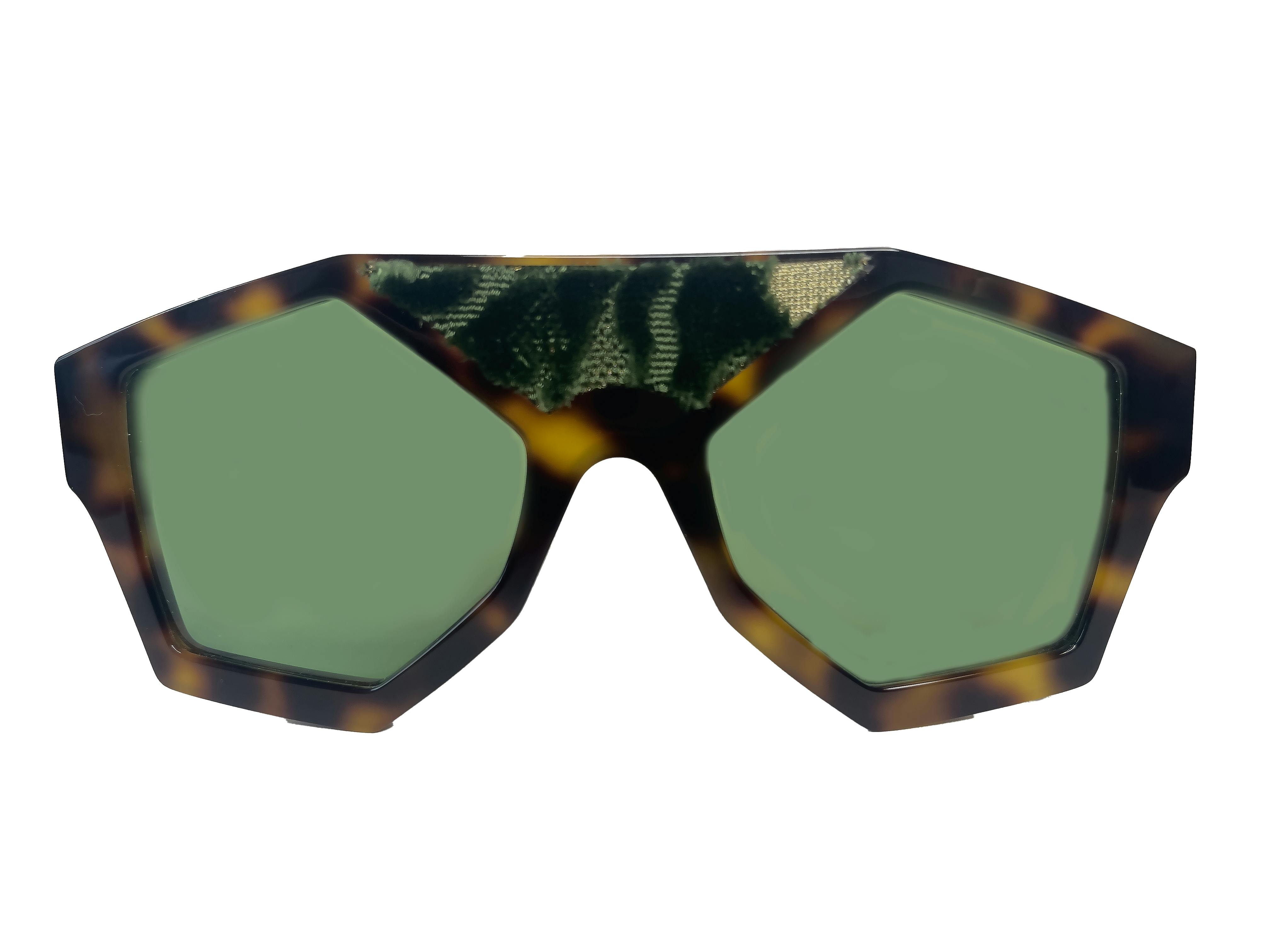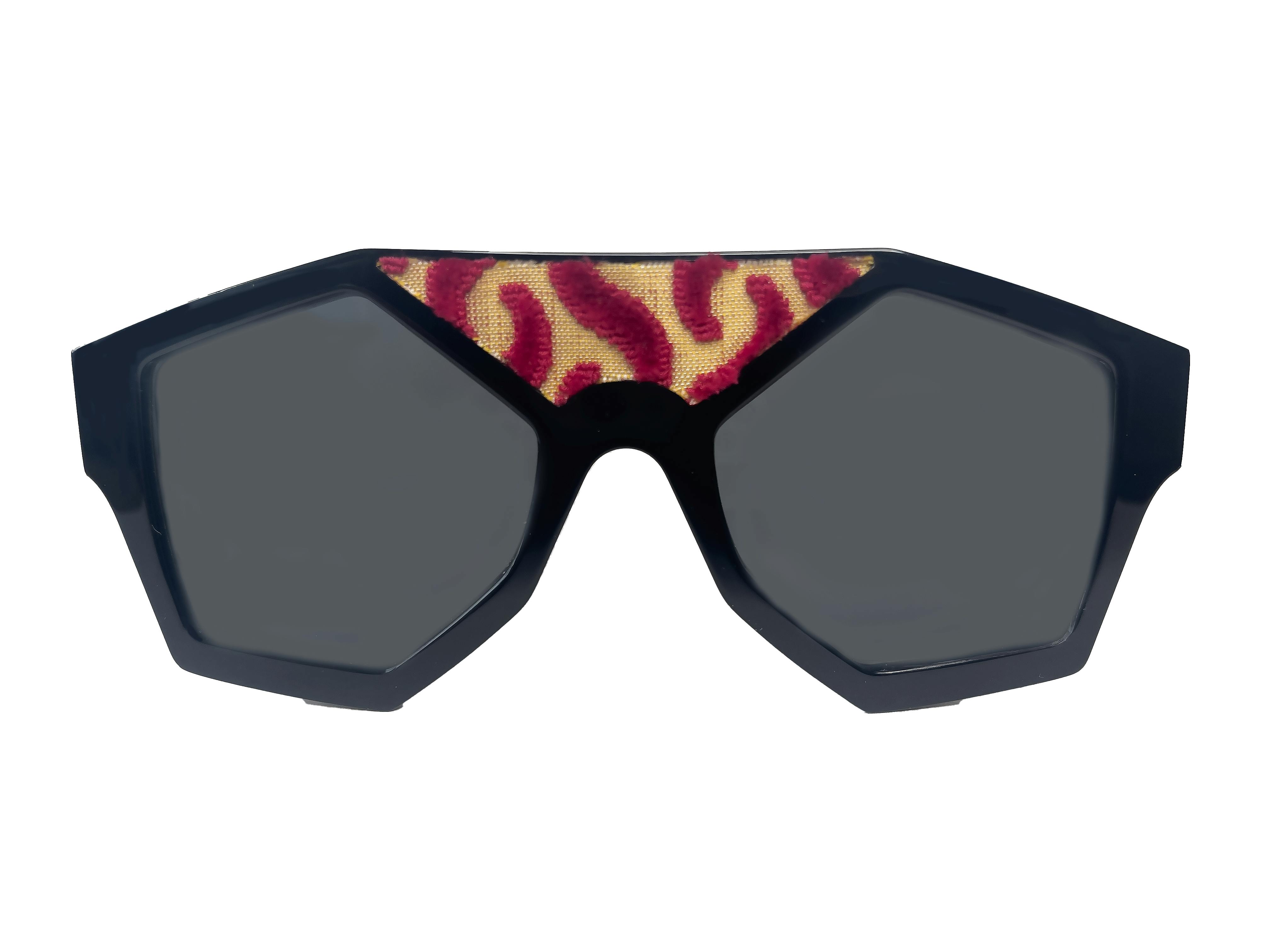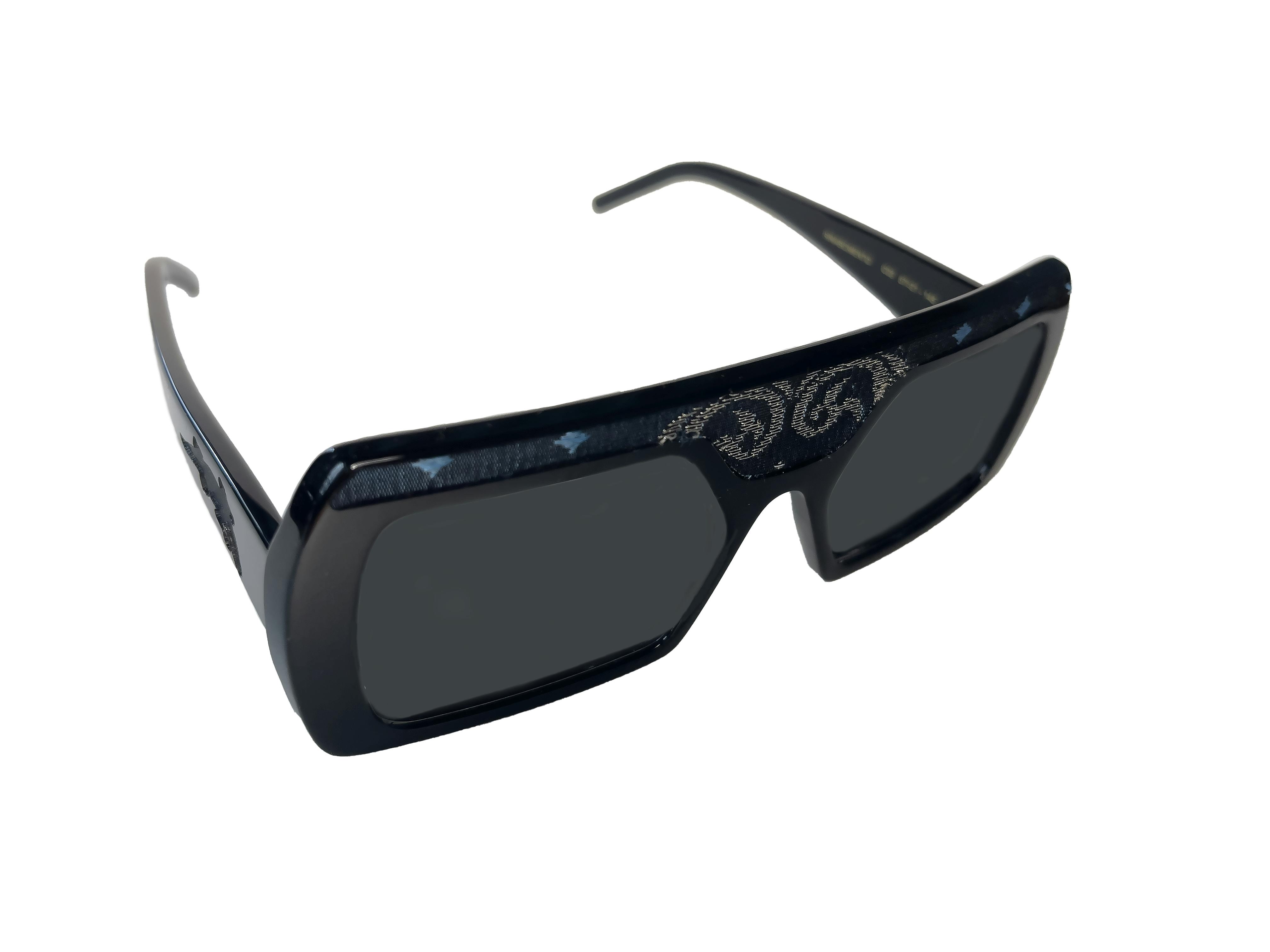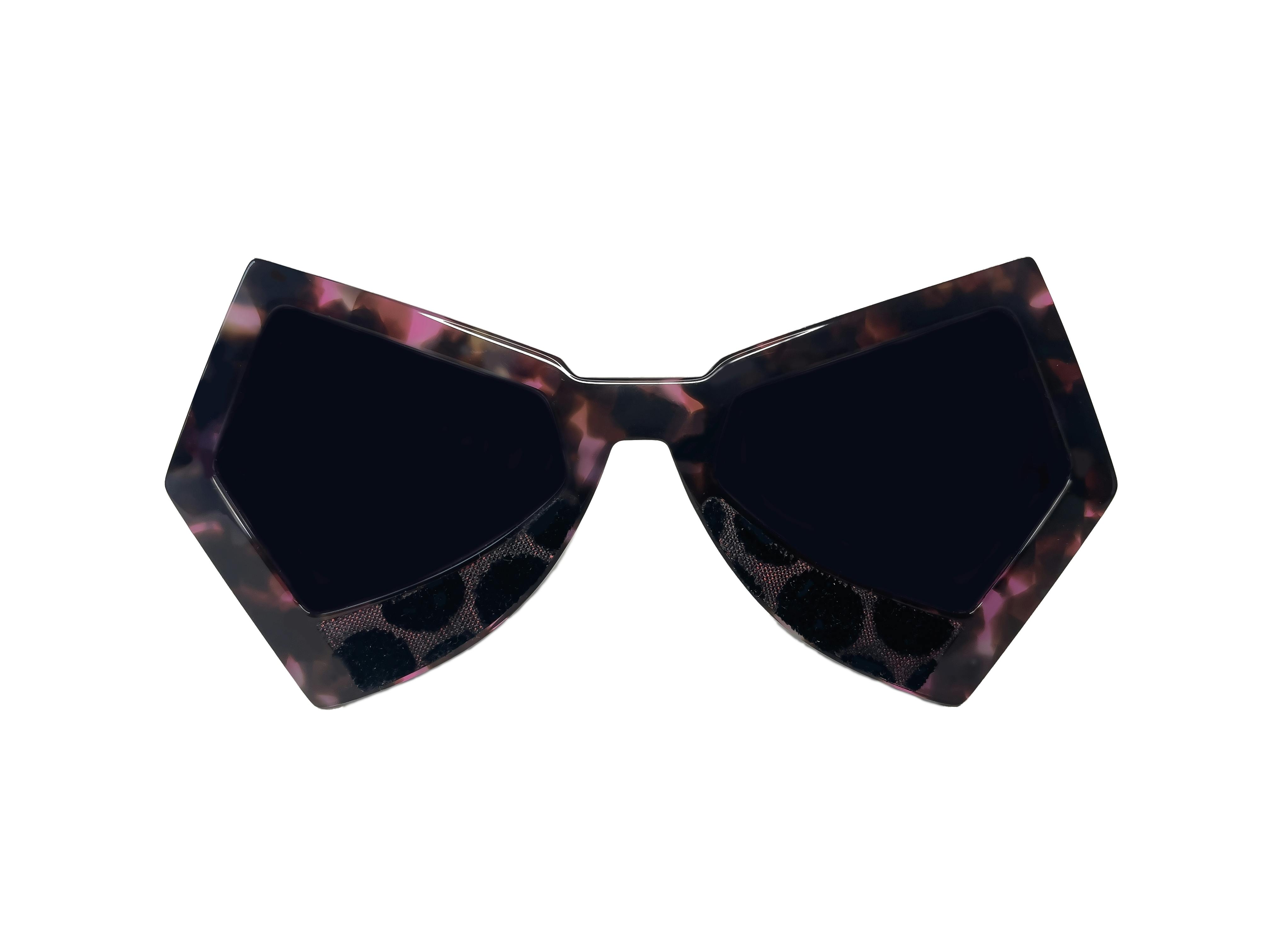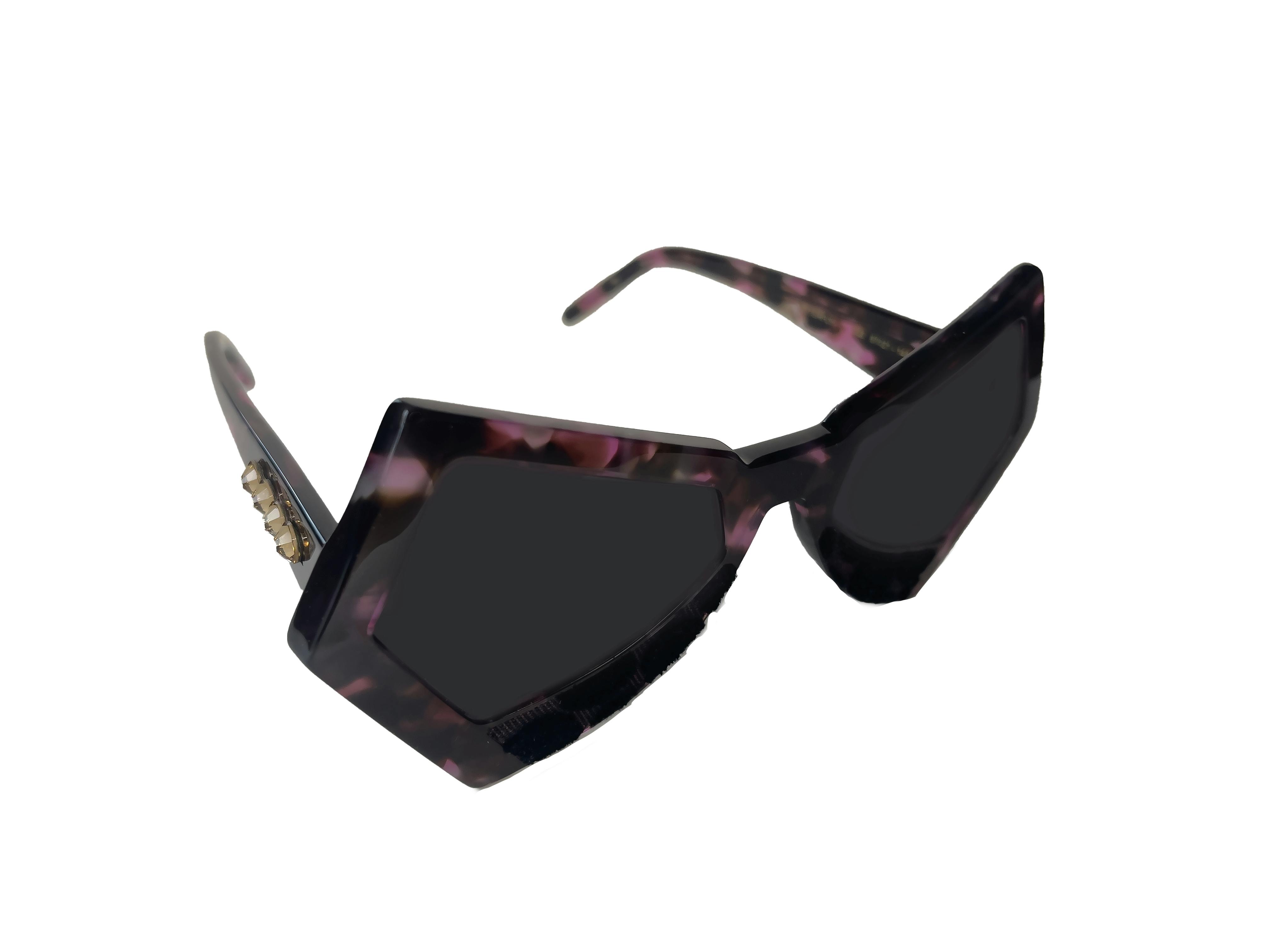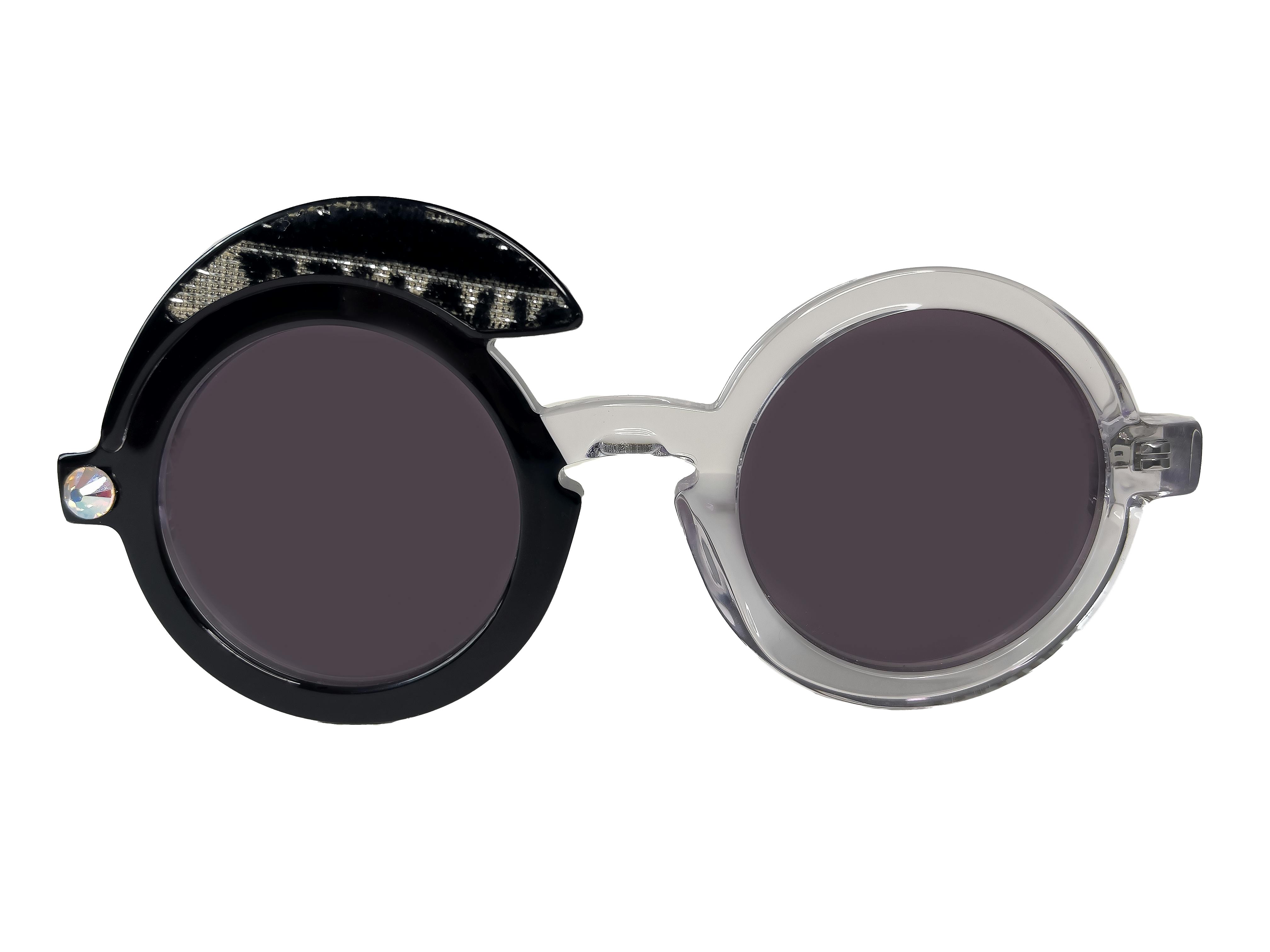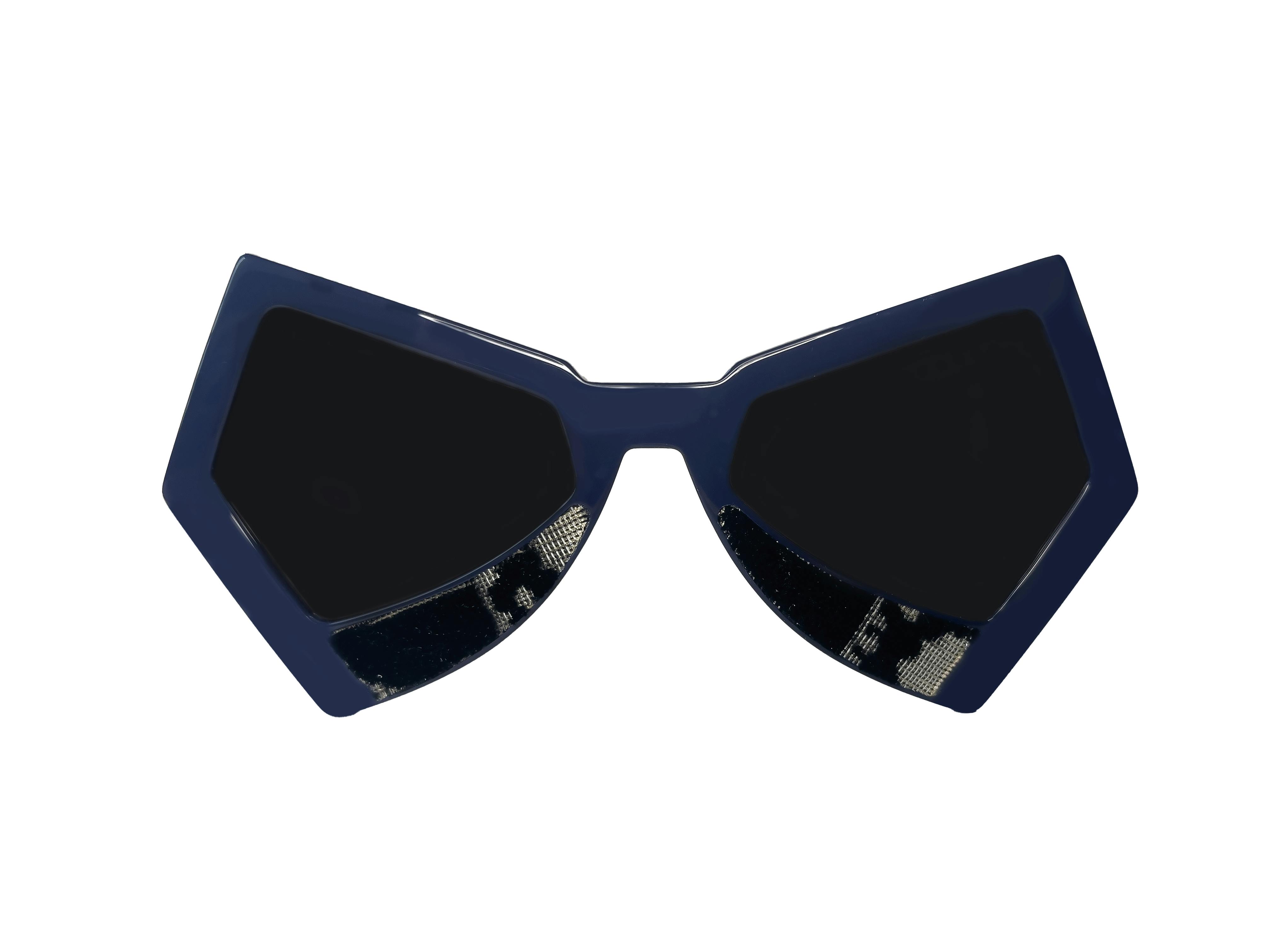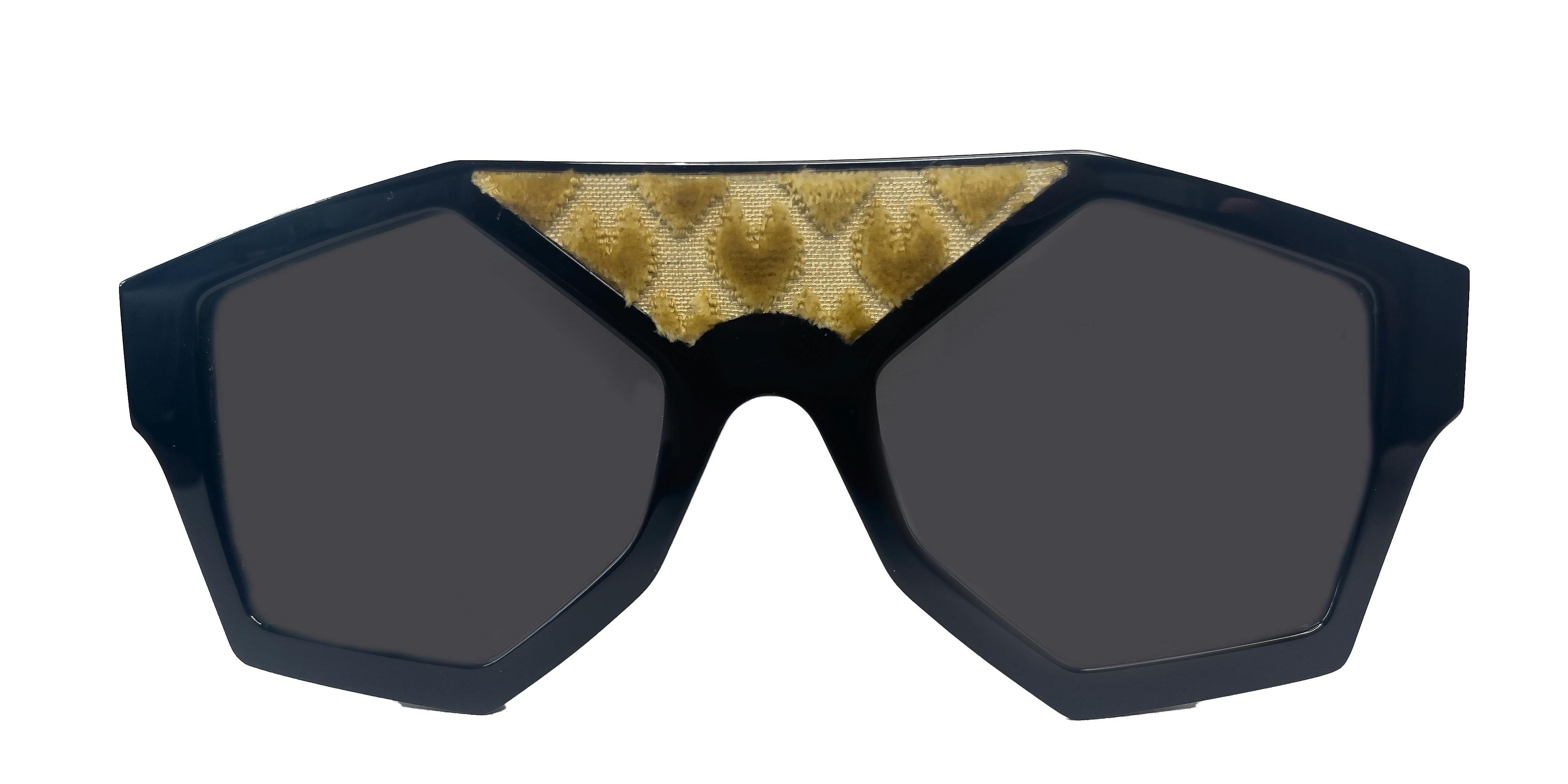
Clarissa Oliverio Couture
For Clarissa, the process of creating an accessory or a garment involves a clear vision of her creative intent, meticulous material research, hands-on craftsmanship, stylistic design, and the creation of form. All of these elements convey a metaphorical concept that is very precise to her.
What has been Clarissa's journey through dreams, difficulties, and significant changes, she can recreate and redefine in an accessory or garment that others can wear and interpret freely. Each individual can receive and reinterpret that story in their unique way, countless times. The mood of her collections relentlessly follows this creative path.
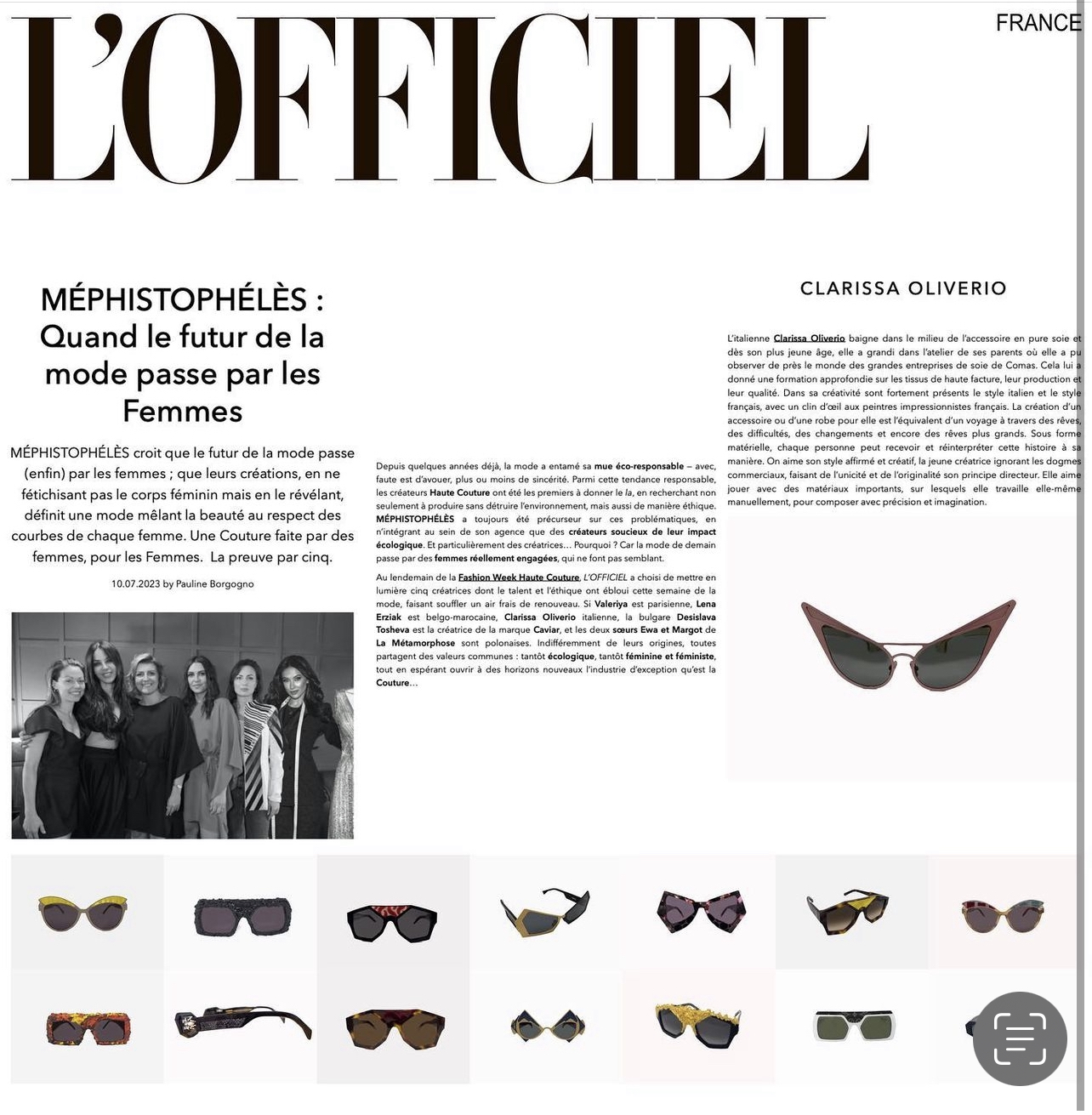
Clarissa's style is decisive and creative, and she disregards commercial conventions, making uniqueness and originality her guiding principles. She revels in working with exquisite materials, often crafting them manually with precision and imagination.
The velvet, previously treated in the Atelier on its reverse side, is manually cut to the edge without seams and only then inserted into the acetate using permanently adhesive materials that never lose grip, even when exposed to wet conditions or extreme heat or cold. The exceptional craftsmanship of the handwoven velvet and brocade allows the fabric to last forever, just as it did with the garments of the nobility that we can still observe in historical museums.

